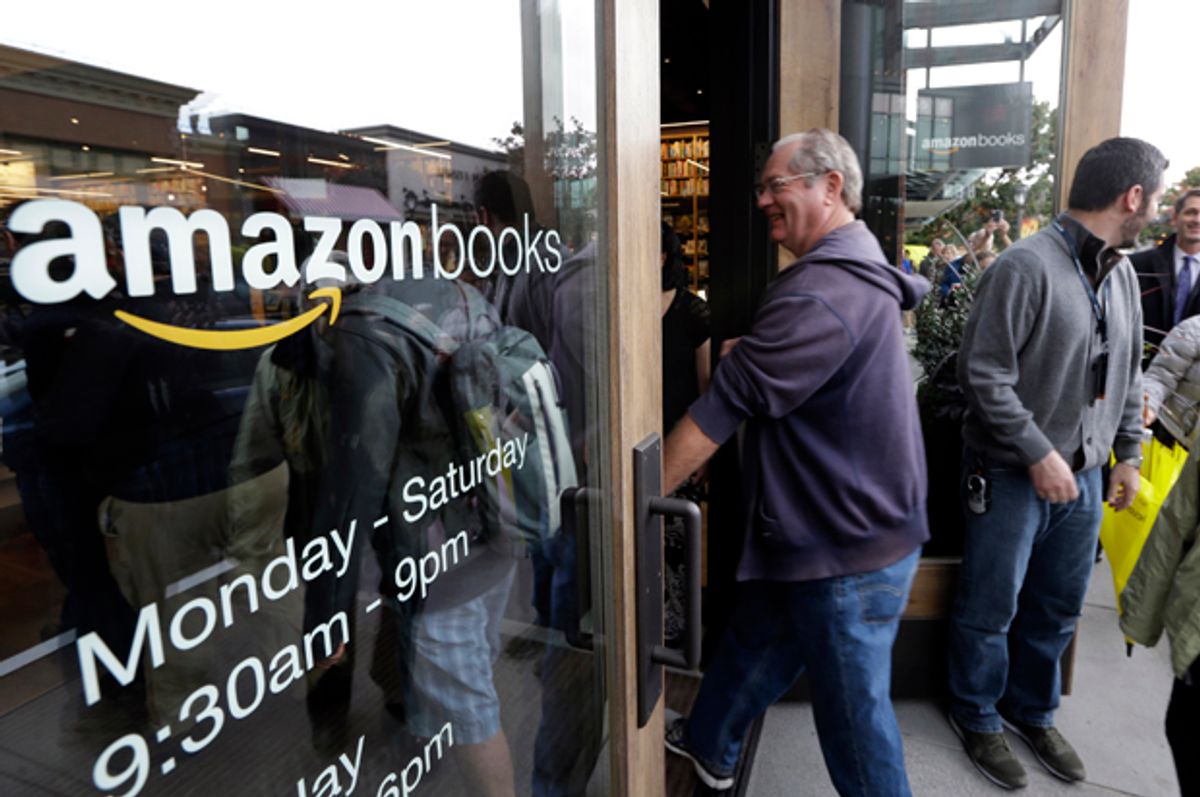Ever wonder how regular stores manage competition with Amazon? Well, now the bar is about to be set higher, with the giant goods and delivery retailer set to enter the food and baby market according to The Wall Street Journal.
Amazon already sells its own clothing and electronic goods, but soon, its concessions will include perishable items such as coffee, tea, spices, and baby food, as well as non-perishables like diapers and detergent.
To begin with, the goods will be sold exclusively to Amazon Prime customers, under brand names like "Wickedly Prime," "Mama Bear," and "Happy Belly." The new private-label brands could launch “as soon as the end of the month,” the Journal reports.
But what about small, or even medium-sized businesses who will not be able to compete with the giant conglomerate of produce, ease and efficiency that is Amazon? Why would the average consumer choose to make the time to visit his local watch mechanic, when he can order both the part and the tools at a cheaper cost and free delivery, on Amazon Prime?
The New Republic's Franklin Foer wrote about the danger of the Amazon monopoly in 2014:
Amazon is the shining representative of a new golden age of monopoly that also includes Google and Walmart. Unlike U.S. Steel, the new behemoths don’t use their barely challenged power to hike up prices. They are, in fact, self-styled servants of the consumer and have ushered in an era of low prices for everything from flat-screen TVs to paper napkins to smart phones. In other words, we’re all enjoying the benefits of these corporations far too much to think hard about distant dangers.
Currently, the global food retail market is valued at $2.14 trillion; Amazon makes $75 billion a year and is no stranger to selling other companies’ food. Now, by cutting out the middle-men, and with all products to be made in-house, the goods retailer will keep all of the profits. But the trail that Amazon has left in its pursuit of "bigness," has been of destruction, as Foer points out. Competitors undercut, suppliers squeezed; some of it necessary, most of it highly worrisome. If we guesstimate what could happen to food stores by comparing to similar items, well, it doesn't look good. Bookstores across the country are failing, authors’ royalties have been squeezed and books are cheaper because of Amazon’s relentless efforts to drive prices lower.
Still, Amazon will have to find a way to move consumers away from its trusted private-label food brands and try Amazon’s own. This won't be easy. Last year, Amazon had to recall its private Element brand of diapers because of a design flaw. And there’s considerably more risk with producing and selling fresh food. But something hints at the fact that it won't be too long before we're eating Amazon yogurt.

Shares